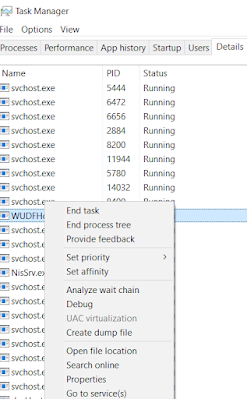Unlocking Code Brilliance: The Art of Code Maintainability for Students
Introduction
What is Code Maintainability?
Code maintainability is a bit like the upkeep of a digital garden. It involves tending to your computer programs regularly to ensure they stay clean, organized, and easy to work with. Much like arranging your toys or belongings in a particular order, code maintainability involves structuring your code so that it remains understandable and manageable over time.
Why is it Important for Students?
As you embark on the journey of learning how to code, think of it as learning to build with Lego blocks. When you create something with Legos, you want it to be sturdy and easy to modify or expand upon. Similarly, in the coding world, maintaining your code ensures that it remains robust and adaptable, making it simpler for you and your fellow coders to understand and modify as needed.
Example:
Let's imagine you're constructing a virtual world through code. If your code is well-maintained, it's like having a detailed map that guides you through the various sections of your digital realm. On the other hand, if your code is messy and disorganized, it's akin to navigating through that world with a vague or incomplete map – it can lead to confusion and frustration.
Check out more on Clean Coding, Aspect Oriented Programming
Code Snippet:
Consider a basic piece of code that calculates and prints a result. Here is a messy version:
abc = 10
x = abc + 5
print(x)
Now, compare it to a neater version:
base_value =
10
result =
base_value + 5
print(result)
The neater version uses descriptive variable names, making it much easier for anyone, including yourself, to understand what the code is doing. Its like using clear labels on your Lego pieces, making it evident where each piece fits.
Case Studies
Why Learn from Real-Life Examples?
Real-life case studies are like treasure maps in coding. They
guide you through the challenges and successes of others, helping you navigate
your coding journey. Examining projects that faced difficulties due to poor
code maintainability and those that thrived due to its implementation gives you
valuable insights into the real-world impact of clean coding practices.
Example:
Consider a project that neglected code maintainability. It
might have faced delays, bugs, and frustrated team members. On the flip side,
envision a project where code was prioritized – smooth development, quick issue
resolution, and a happy, efficient team. Real-life examples provide a tangible
understanding of how code maintainability directly affects project outcomes.
Code Snippet:
Let's explore a simplified snippet from a project that faced challenges due to poor code maintainability:
Poorly maintained code
a = 10; b = 5; c = a b; print(c)
And compare it to a snippet from a successful project with well-maintained code:
Well maintained code
base_value = 10
multiplier = 5
result = base_value multiplier
print(result)
The contrast in these snippets illustrates the difference in outcomes that can arise from code maintainability practices.
Conclusion
What Have We Learned about Code Maintainability?
Throughout this journey into the world of code maintainability, we've discovered that writing and maintaining clean code is like crafting a masterpiece. Just as a skilled artist pays attention to every stroke, a proficient coder values each line of code. The beauty of clean code lies in its simplicity, clarity, and the ease with which it can be understood by others.
Encouragement for Students:
To all the aspiring coders out there, think of coding as telling a story. The more effectively you tell your story, the more people will enjoy reading it. Prioritizing code maintainability is like refining your storytelling skills. It's an investment in your future projects and collaborations.
Example:
Imagine an artist who consistently refines their techniques. Over time, their work becomes not just art but a testament to their dedication. Similarly, as you prioritize clean code, your projects become more than just code – they become a reflection of your commitment to craftsmanship.
Code Snippet:
Concluding with a simple code snippet that
encapsulates the essence of clean code:
Crafting clean code
def
create_masterpiece():
Code that reflects dedication and clarity
Calling the masterpiece function
create_masterpiece()
The clean code snippet symbolizes the culmination of your coding journey, where each line contributes to the creation of a digital masterpiece.
In this expanded conclusion, the analogy of crafting a
masterpiece is used to underscore the importance of clean code. The code
snippet is presented within the code block for clarity.

Comments
Post a Comment